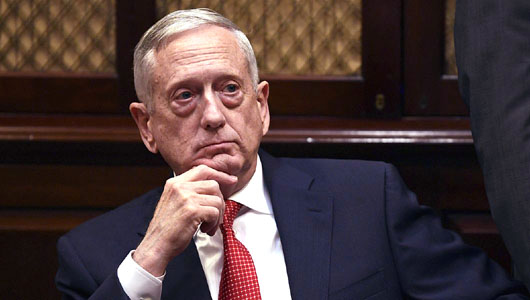Special to WorldTribune.com
 By Donald Kirk
By Donald Kirk
WASHINGTON – Koreans may not believe it, but the upcoming PyeongChang Winter Olympics are not uppermost on the minds of Americans.
In fact, no one in the upper reaches of the U.S. government, including President Trump, is worrying about whether North Korea is using the Games to drive a “wedge” between the U.S. and South Korea.
That’s not because Americans don’t care about the Games or about Korean issues. It’s because, right now, all Americans are concerned about is when or how the federal government will start running again.

That’s right. While the world twists and turns with wars, hunger, refugees, disease and famine, the world’s most powerful government has run out of funds. That’s because the U.S. Congress is stuck in a seemingly insoluble debate over passage of the budget needed to fund all U.S. government agencies, including the U.S. armed forces.
The refusal of Republicans and Democrats in the U.S. Senate to come to terms is turning into a national crisis that infuriates bureaucrats worried about paying their people, none more so than the secretary of defense, Jim Mattis, a former marine general (also known as “Mad Dog Mattis”).
Mattis has warned that it’s almost impossible to maintain a coherent defense policy while Congress is stymied over voting the funds needed to run a military establishment fighting wars in the middle east and the threat of war on the Korean peninsula.
The crisis is such that U.S. reserve troops, on weekend training, were sent home last Saturday when their commanders said they would not be paid for their service. Regular troops in the army, navy, air force and marines are expected to be paid from existing funds, but the longer Congress fails to pass the budget, the more jeopardy individual troops face in paying personal bills.
President Donald Trump and his aides in the White House accuse stubborn leaders of the opposition Democratic Party with betraying the troops and giving up their responsibilities by holding out against voting for the budget.
At issue is the insistence of Democrats, led by Senator Chuck Schumer from New York, on including in the budget bill a guarantee that the administration will agree to provide funding for so-called “dreamers” – that is, about 800,000 young people who came to the U.S. originally as the children of parents who entered illegally. “Dreamers” are not U.S. citizens since they were born outside the U.S. even though they speak English and went to school in the U.S.
An overwhelming percentage of Americans, according to polls, think that “dreamers” should be able to stay in the U.S. under the Obama policy of DACA, Deferred Action for Childhood Arrivals. DACA enabled them to stay in the U.S. for two more years and also to obtain a work permit.
The bill for DREAM, for Development, Relief and Education for Alien Minors, does not come up for a vote by Congress for another two months, but Democrats believe there’s no way to get Trump to endorse it unless they block his budget. Schumer was not persuaded even though he had a hamburger lunch with Trump in the White House on Saturday.
Trump accuses Schumer of deliberately jeopardizing U.S. troops in hot spots from the Korean peninsula to Syria. White House aides ask the question, “Who do you care about, our American troops or illegal immigrants.”
Nobody is more outraged by the delay than Secretary Mattis, who has said in news conferences and interviews that it is extremely difficult to run the Department of Defense when Congress fails to pass the budget.
Mattis in a recent speech Mattis repeated his call for America to work closely with allies and partners — an approach that aligns more closely with previous administrations than President Donald Trump’s “America First” ideas. That mantra was repeated in a national security strategy that Trump’s administration released in December.
In the speech Mattis said the U.S. would go on fighting terrorists especially in the middle east but warned that “great power competition — not terrorism — is now the primary focus of U.S. national security.”
In other words, Mattis believes the U.S. has more to fear from an expansionist China and a resurgent Russia than from terrorist groups such as ISIS, the Islamic State, which he claims is largely defeated.
But how, he asked, can a country keep up the fight when the planners have to worry about whether they will have the funds and when they can get them. The situation has immediate relevance for the Korean peninsula, where South Korean and American forces are constantly ready for whatever North Korea’s leader Kim Jong-un may be planning.
Military planners note that failure to approve the budget also provides problems for South Korean and U.S. forces preparing for annual war games, postponed at President Moon’s personal request to President Trump, until after the Olympics and Paralympics.
Vice President Michael Pence indicated President Trump was not considering a compromise on Dreamers as long as the Senate blocks the vote on the budget. “We’re not going to reopen negotiation on illegal immigration,” he told American troops, “until they reopen the government and give you, our soldiers and your families, the benefits and wages you’ve earned.”
